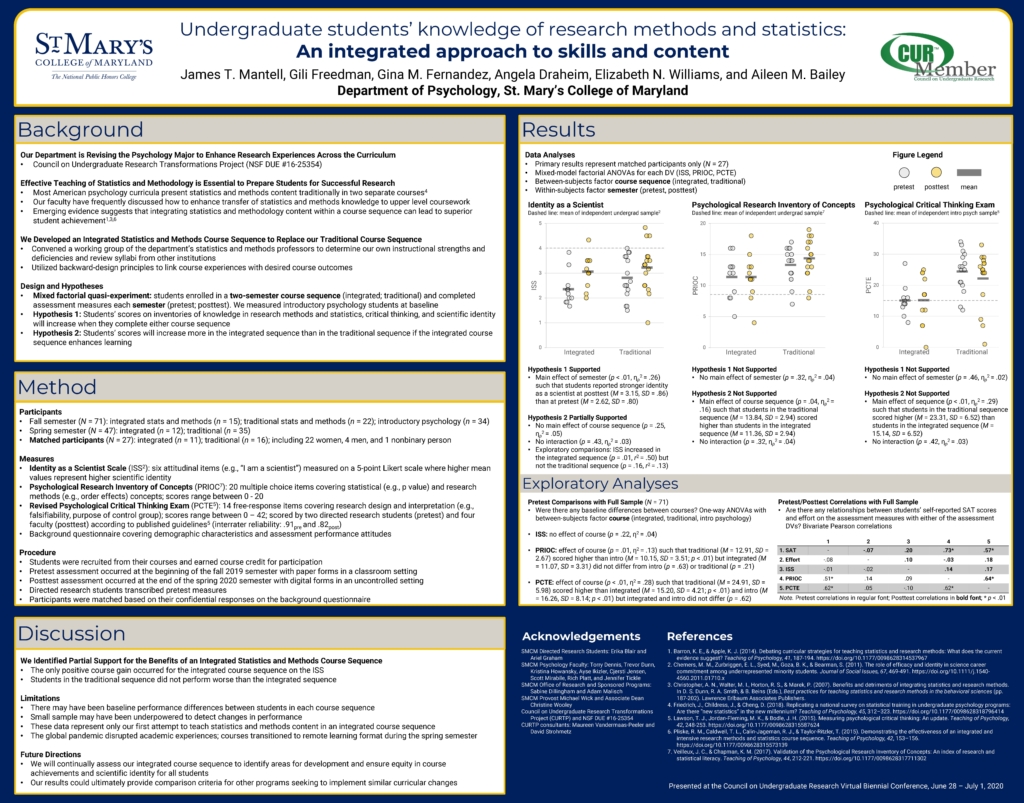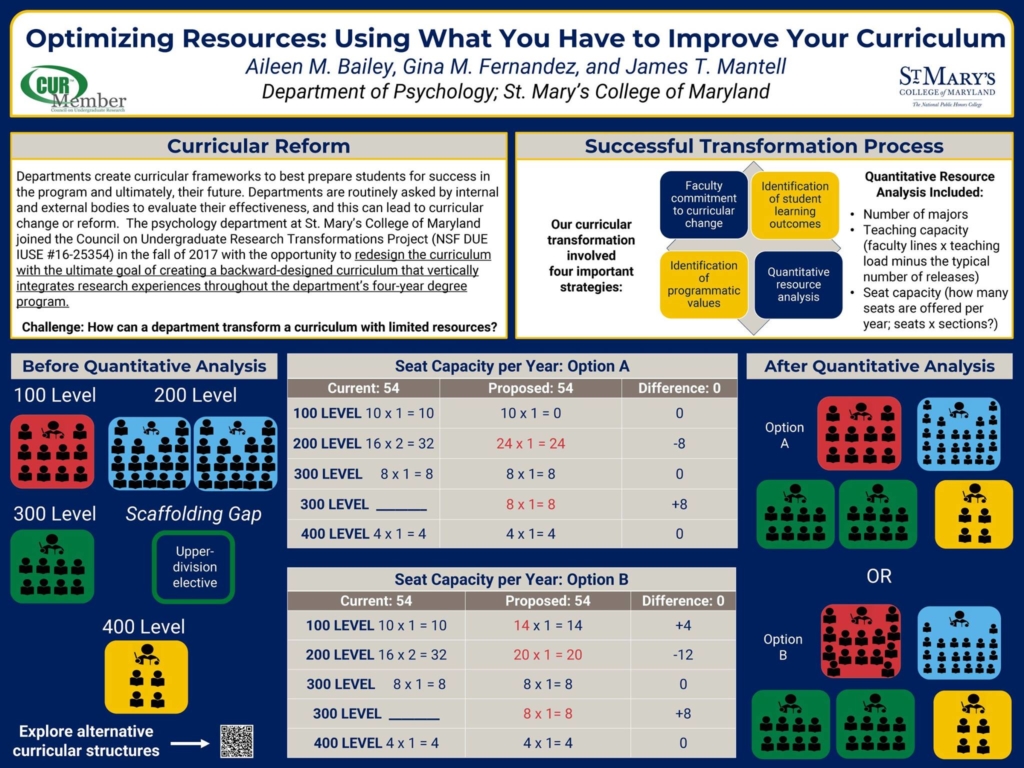Freedman Receives Collaborative Grant from the National Science Foundation
 Congratulations to Dr. Gili Freedman!
Congratulations to Dr. Gili Freedman!
Assistant Professor of Psychology Gili Freedman and colleague Dr. Jennifer Beer (University of Texas at Austin) recently received a collaborative, three-year grant from the National Science Foundation for a total of $465,222 ($75,102 of which will go to SMCM). In the project titled “Collaborative Research: Lessening the Blow of Social Rejection,” Freedman and Beer will be investigating the language of social rejection and how power and concern for one’s reputation shape the way that individuals reject others. A central aim of the project is to develop empirically supported training that teaches individuals how to be less hurtful when they engage in social rejection. Starting this fall, Freedman will be working with SMCM collaborative research students on the first stages of the grant.
Read the award abstract on NSF’s website.
Bailey and Mantell Present Posters at CUR Virtual Biennial Conference
Professor of Psychology Aileen Bailey and Associate Professor of Psychology James Mantell presented posters at the CUR Virtual Biennial Conference 2020, June 29-July 1. Bailey presented “Optimizing Resources: Adding Undergraduate Research Experiences to the Curriculum Using Existing Resources.” Assistant Professor Gina Fernandez and Associate Professor James Mantell were coauthors on this poster. Mantell presented “Undergraduate Students’ Knowledge of Research Methods and Statistics: An Integrated Approach to Skills and Content,” which can be viewed here. Assistant Professor Gili Freedman, Assistant Professor Gina Fernandez, Angie Draheim, Professor Libby Williams, and Professor Aileen Bailey were coauthors on the poster.
Both posters were based on work that has been borne out of the psychology department’s involvement in the Council on Undergraduate Research Transformations Project (CUR-T), funded by the National Science Foundation (DUE IUSE Award no. 16-25354).
Freedman Published in Comprehensive Results in Social Psychology
Congratulations to Dr. Gili Freedman on her recent publication!
Freedman, G., Brandler, S. & Beer, J. S. (2019). Does engaging in social rejection heighten or diminish social processing? Comprehensive Results in Social Psychology, DOI: 10.1080/23743603.2019.1684820
Engaging in social rejection can lead to feeling both increased social power and decreased belongingness. Yet, social power is associated with diminished social sensitivity, whereas threatened belongingness can enhance social sensitivity. In a registered report, Freedman and coauthors tested these competing hypotheses of how engaging in social rejection may affect social sensitivity. Contrary to the competing hypotheses tested, they did not find evidence that social rejection, compared to social acceptance, led to increased or decreased social sensitivity. An exploratory analysis found that men who engaged in rejection showed decreased social sensitivity compared to men who did not engage in rejection.
Freedman Published in Psychology of Popular Media Culture
 Congratulations to Dr. Gili Freedman on her recent publication, “Obituaries can Popularize Science and Health: Stephen Hawking and Interest in Cosmology and Amyotrophic Lateral Sclerosis” in Psychology of Popular Media Culture.
Congratulations to Dr. Gili Freedman on her recent publication, “Obituaries can Popularize Science and Health: Stephen Hawking and Interest in Cosmology and Amyotrophic Lateral Sclerosis” in Psychology of Popular Media Culture.
Freedman’s research examines the influence of physicist Stephen Hawking’s death on public interest in science topics related to his work. She also examines whether the representation of male versus female physicists quoted in the obituary increased perceptions of gender equity in science.
Freedman Quoted in The New York Times
 Assistant Professor of Psychology Gili Freedman was recently interviewed by The New York Times about her research on ghosting. The article was published January 22, 2019.
Assistant Professor of Psychology Gili Freedman was recently interviewed by The New York Times about her research on ghosting. The article was published January 22, 2019.
Read it here.
Freedman Awarded Grant from the Spencer Foundation
 Gili Freedman, assistant professor in psychology, has received a grant for $49,051 from the Spencer Foundation for her work on “Changing Attributions to Improve Persistence of Women in STEM.” Congratulations, Dr. Freedman!
Gili Freedman, assistant professor in psychology, has received a grant for $49,051 from the Spencer Foundation for her work on “Changing Attributions to Improve Persistence of Women in STEM.” Congratulations, Dr. Freedman!



